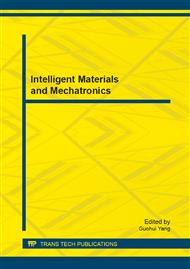[1]
J. T. Tsai: Study activity course of the field to design in mix of activities of national middle school: Regard exploring the educational activities as the example。Bulletin of Civic and Moral Education, 16, 37-56, (2005).
Google Scholar
[2]
S. Priest: The semantics of adventure education. In J. Miles & S. Priest (Eds. ), Adventure education, State College, PA: Venture, 113-114, (1990).
Google Scholar
[3]
J. Hattie, H. W. Marsh, J. T. Neill & G. E. Richards: Adventure education and Outward Bound: Out-of-class experiences that make a lasting difference. Review of Educational Research, 67(1), 43-87, (1997).
DOI: 10.3102/00346543067001043
Google Scholar
[4]
J. Schoel, D. Prouty & P. Radcliffe: Islands of healung:A guide to adventure based counseling. Hamilton, MA: Project Adventure, 69-73, (1988).
Google Scholar
[5]
K. Rohnke: Project Adventure a widely used generic product. Journal of Physical Education, Recreation, Dance, 57, 68-70, (1986).
DOI: 10.1080/07303084.1986.10606139
Google Scholar
[6]
T. Y. Yu: Junior high school students to explore educational activities affect self-concept and interpersonal relationships I of the experimental study. National Taiwan Normal University, Institute of Civil Discipline Thesis, Unpublished master's thesis, Taipei, (2000).
Google Scholar
[7]
T. T. Wu & J. M. Shie: Ropes challenge course adventure education for students living in the affected performance and team cohesion. Humanities and Social Sciences, 4(1), 74-91, (2010).
Google Scholar
[8]
T. T. Wu & L. J. Weng: Outdoor adventure education camp for elementary school children live performance and impact of self-concept. Recreational Sports Health Review, 1(2), 79-99, (2010).
Google Scholar
[9]
A. Bandura: Self-efficacy mechanism in human agency. American Psychologist, 37, 122-147, (1982).
DOI: 10.1037/0003-066x.37.2.122
Google Scholar
[10]
A. Bandura: Self-efficacy: Toward a unifying theory of behavioral change. Psychological Review, 84(2), 191-215, (1977).
DOI: 10.1037/0033-295x.84.2.191
Google Scholar
[11]
S. Y. Shiu & L. L. Huang: Academic Achievement Factors affecting self-efficacy. Journal of Counseling and Guidance, 160, 2-5, (1999).
Google Scholar
[12]
T. T. Wu: Ropes Challenge Course benefits Scale for Research. Institute of Physical Education FORUM, 18(1), 39-54, (2007).
Google Scholar
[13]
W. Schulz: Measuring the socio-economic background of students and its effect on achievement in PISA 2000 and PISA 2003. Paper presented at the Annual Meetings of the American Educational Research Association, San Francisco, (2005).
Google Scholar
[14]
M. A. Gass: Books of metaphors. Kend All/Hunt, Publishing, Iowa, (1995).
Google Scholar
[15]
J. T. Neill: A measurement tool for assessing the effects of adventure-based programs on outcomes for youth-at-risk participants. Unpublished manuscript. Retrieved January 14, 2008, from http: /wilderdom. com/tools/leq/You thDevelopmentLEQScalesPaper. htm, (2007).
Google Scholar
[16]
M. Constantine: The effect of a rope course experience on perceived self-efficacy: A study designed to examine the effects of an adventure program. Pennsylvania Journal of Health, Physical Education, Recreation, and Dance, 63(2), 10, (1993).
Google Scholar
[17]
W. Schulz: Measuring the socio-economic background of students and its effect on achievement in PISA 2000 and PISA 2003. Paper presented at the Annual Meetings of the American Educational Research Association, San Francisco, (2005).
Google Scholar


